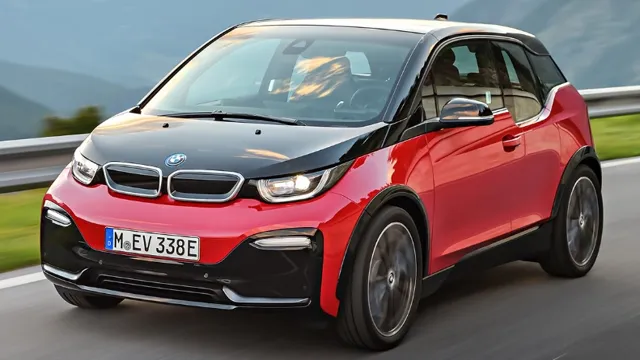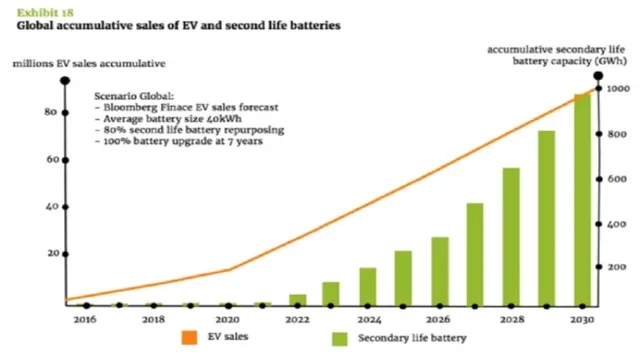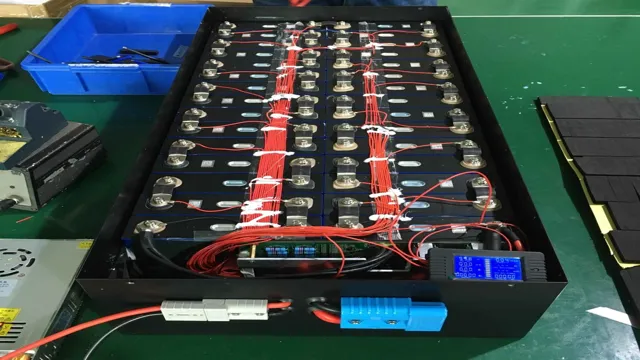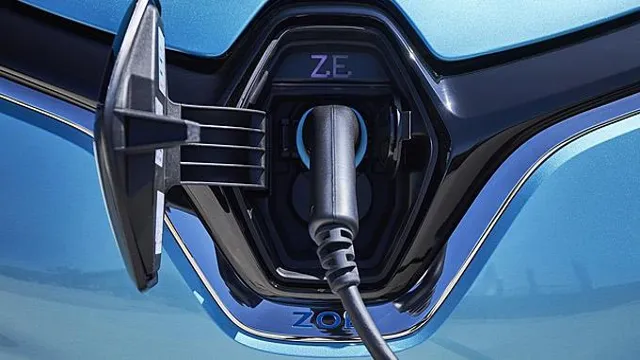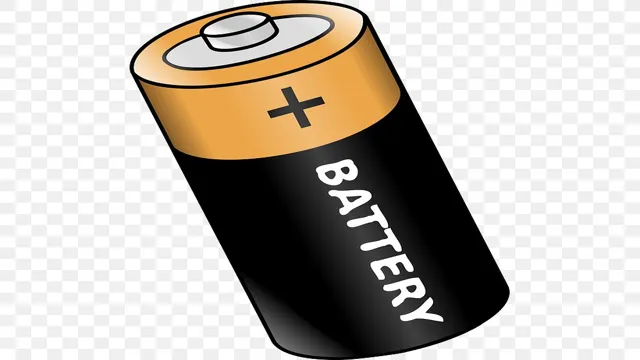Revving Towards a Greener Future: Biden’s $3 Billion Plan for Electric Car Batteries
President Biden has recently launched a $3 billion electric car battery plan that aims to boost the domestic production of batteries for electric vehicles. The plan is part of the broader push by the Biden administration to increase the adoption of EVs as part of its efforts to combat climate change. With this initiative, the US hopes to catch up with China, which is currently the global leader in battery production.
The plan includes a number of measures, including tax credits for companies that produce EV batteries in the US, grant programs for research and development, and funding for manufacturing facilities. The goal is to make electric cars more affordable and accessible to consumers, while also creating jobs and boosting the economy. This is a significant step forward in the transition to sustainable transportation, as the batteries used in electric cars are a crucial component of their success.
By increasing their production at home, the US can reduce its reliance on foreign imports and create a more robust and resilient supply chain. Overall, the Biden administration’s $3 billion electric car battery plan represents a major investment in the future of clean energy and sustainable transportation. Alongside other initiatives aimed at reducing carbon emissions and promoting renewable energy sources, this plan is a positive sign that the US is taking significant steps towards mitigating the effects of climate change.
Problem: Dependence on Fossil Fuels
The dependency of the United States on fossil fuels has been a growing problem for decades. However, the Biden administration has recently announced a $3 billion plan to help shift the country to a cleaner energy source – electric vehicle batteries. This is a significant step towards reducing the carbon footprint and promoting sustainability.
With this new initiative, not only will the manufacturing of electric car batteries occur on U.S soil, but consumers can also receive incentives when they purchase electric cars. This plan will not only help reduce pollutants in the air, but it will also create new jobs for Americans while promoting a greener environment.
The United States is the largest producer of greenhouse gases, and this plan will put the country on the path to reduce emissions and make a positive impact on climate change. The shift will require a concerted effort from all Americans, but with the introduction of this $3 billion initiative, it is a step in the right direction.
U.S. Heavy Reliance on Oil
It’s no secret that the United States has a heavy dependence on oil, but why is this such a problem? Our reliance on fossil fuels not only negatively impacts the environment, but it also leaves us vulnerable to fluctuations in oil prices and supply disruptions. The more we rely on oil, the more we are subject to the whims of foreign governments and market forces. Our transportation sector, for example, is heavily dependent on oil, which means that we’re beholden to the oil industry for everything from fuel prices to vehicle manufacturing.
This is not a sustainable or resilient way to run our country, and it’s why we must urgently transition towards cleaner and more diverse energy sources. Diversifying our energy mix will not only protect us from supply shocks but also create jobs and stimulate innovation in the clean energy sector. It’s time to move beyond our heavy reliance on oil and towards a more sustainable and resilient energy future.
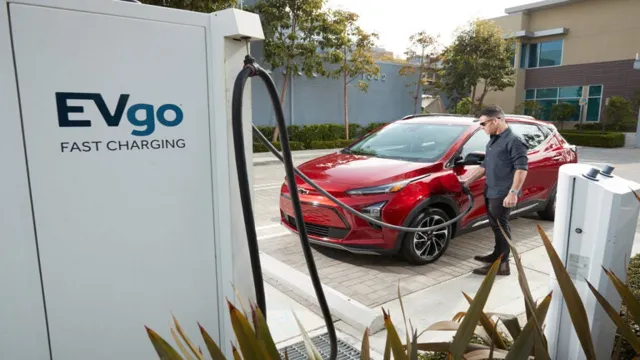
Harmful Emissions from Gas-Powered Cars
Gas-powered cars emit harmful pollutants, contributing significantly to environmental degradation. The problem of harmful emissions from vehicles is primarily due to the world’s dependence on fossil fuels. Gasoline and diesel fuels dominate transportation, and they are derivatives of crude oil, which have a severe impact on the environment.
These fuels increase the levels of carbon dioxide, carbon monoxide, and nitrogen oxide emissions in the atmosphere, which are significant contributors to climate change and environmental pollution. The situation is further exacerbated by the number of people owning and driving cars, leading to increased emissions. The problem of dependence on fossil fuels can be reduced by promoting the use of renewable energy in transportation, such as electricity and biofuels.
Electric cars have made significant strides in recent years, and they are becoming more prevalent in the market. Biofuels, on the other hand, are a cleaner alternative to gasoline and diesel fuels, and they release fewer emissions into the environment. Reducing dependence on fossil fuels can help to mitigate climate change, protect the environment, and improve air quality, leading to a healthier and cleaner planet for future generations.
Solution: Expansion of Electric Cars
The Biden administration recently announced a game-changing $3 billion plan to expand the electric car market in the United States. The initiative will focus on the growth of electric car batteries, which has been a key factor limiting the widespread adoption of electric vehicles. By investing in research and development, the administration aims to improve the performance and affordability of these batteries, making electric cars more accessible to consumers.
With this significant investment, the administration hopes to make electric cars the new standard in the automotive industry and significantly reduce greenhouse gas emissions caused by transportation. This move sets a promising precedent for the future of sustainable transportation in the U.S.
, and it’s exciting to see the government take such a bold step towards a more environmentally friendly future.
Increased Production of EV Batteries
As the demand for electric vehicles continues to rise, so must the production of their essential component: batteries. To truly expand the birth of eco-friendly vehicles, automakers must work to enhance their battery supplies. The improvements made to EV batteries in recent years have been substantial, yet there’s still plenty of room for growth.
The expansion of electric cars would lead to an increased production of EV batteries. Additionally, with recent advancements in technology, it’s now possible to develop batteries that are lighter, more efficient, and longer-lasting. This creates opportunities for companies to create new, more advanced batteries that will enhance the performance of electric vehicles.
As electric cars become more commonplace, it’s essential to continue research and development in energy storage. By doing so, manufacturers will improve the lives of millions of people while helping to move toward a cleaner and more sustainable future.
Lower Costs of Electric Cars
One of the biggest barriers for people considering electric cars is the high upfront cost, but the good news is that as technology improves and production scales up, the cost of electric vehicles (EVs) is coming down. Lower costs will make it easier for more people to switch to emissions-free driving and help accelerate the transition to a low-carbon future. Governments are offering incentives to make EVs more affordable, and automakers are investing heavily in EV production, which will also help to lower the price tag.
As the market for EVs grows, we can expect the cost of ownership to decline even further thanks to lower maintenance and fuel costs. Additionally, with battery technology continuing to evolve, we can expect EVs to become even more cost-competitive with petrol and diesel cars in the coming years.
Shift Toward Clean Energy
As the world shifts towards clean energy, the expansion of electric cars has become a solution to reduce carbon emissions and combat climate change. These vehicles offer a sustainable way of transportation that uses electricity to power up the motor instead of fossil fuels, emitting zero emissions in the process. Not only do they protect the environment, but they also prove to be cost-effective in the long run, saving money spent on gasoline.
With technological advancements, electric cars can travel farther distances and are becoming more accessible to the general public. As more companies invest in their production, the price point for electric cars may eventually become more affordable for the average consumer. The expansion of electric cars will not only benefit the environment, but it will also change the face of transportation in the upcoming years.
Impact: Positive Changes Ahead
The Biden administration has announced a $3 billion plan to bolster electric car battery production, creating jobs and helping to reduce the nation’s carbon footprint. This plan is part of a larger effort to combat climate change and transition towards renewable energy sources. The focus of this initiative is on improving domestic supply chains and ensuring that the United States becomes a leader in the production of electric vehicles.
This ambitious plan will help to accelerate the transition away from fossil fuels, making electric cars more affordable and accessible to the average consumer. The impact of this plan will be felt not just in the automotive industry but across the entire economy, creating new opportunities for innovation and growth. As we move towards a cleaner, more sustainable future, the Biden administration’s commitment to electric car batteries is a major step forward.
Reduction of Greenhouse Gas Emissions
One of the most pressing issues facing our planet today is the reduction of greenhouse gas emissions. These emissions are primarily responsible for climate change, which is having a negative impact on our environment, economies, and communities. However, there is hope as we are seeing positive changes ahead.
Many countries, companies, and individuals are taking steps to reduce their greenhouse gas emissions and adopt more sustainable practices. For example, the adoption of renewable energy sources such as wind and solar power has been rapidly increasing, which is a step towards reducing emissions from fossil fuels. Additionally, there has been a growing global movement towards reducing waste and improving resource efficiency, which can help to reduce emissions from both production and consumption.
While there is still much work to be done to address the issue of greenhouse gas emissions, the changes we are seeing are important steps towards a more sustainable future for our planet.
Creation of Jobs in the EV Industry
The creation of jobs in the EV industry is expected to have a positive impact on society and the economy. The shift towards electric vehicles is creating new opportunities for skilled workers, from engineers to assembly line workers and electricians. As more automakers transition to EV production, the demand for these jobs is only going to increase.
This influx of employment opportunities will not only benefit individuals but also play a role in stimulating economic growth. The ripple effect of the EV industry will extend beyond the employees directly involved in the production and maintenance of EVs. Supporting industries such as battery manufacturing and infrastructure development will also create new job opportunities.
The EV industry is poised to revolutionize the automotive sector while simultaneously contributing to job creation and economic growth. It’s an exciting time for both the auto industry and job seekers alike.
Conclusion: A Step in the Right Direction
With the Biden administration’s ambitious $3 billion plan for electric car batteries, it’s clear that they’re charging ahead with a powerful vision for sustainable transportation. This investment in technology and innovation not only benefits the environment but also signals a shift towards a brighter future where electric cars are the norm. It’s a spark of hope for our planet and a jolt of energy for the electric vehicle industry.
It’s time to rev up those motors and drive towards a cleaner, greener future.”
FAQs
What is the $3 billion plan initiated by the Biden administration related to?
The plan is related to electric car batteries.
Who is initiating the $3 billion plan for electric car batteries?
The Biden administration is initiating the plan.
How much money is being allocated for the electric car battery plan by the Biden administration?
The Biden administration has allocated a budget of $3 billion for the electric car battery plan.
What is the objective of the $3 billion plan for electric car batteries initiated by the Biden administration?
The objective of the plan is to accelerate the development and adoption of electric vehicles by supporting domestic production of batteries.

